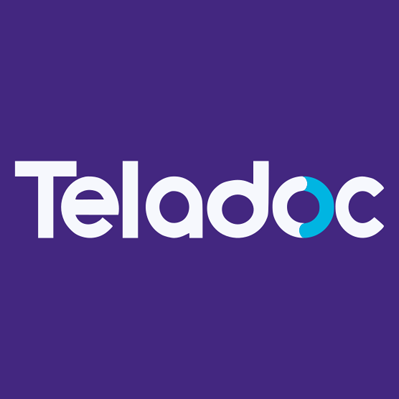Description
Teladoc Health, Inc. is a multinational telemedicine and virtual healthcare company based in the United States. Primary services include telehealth, medical opinions, AI and analytics, and licensable platform services. In particular, Teladoc Health uses telephone and videoconferencing software as well as mobile apps to provide on-demand remote medical care. Billed as the first and largest telemedicine company in the United States, Teladoc Health was launched in 2002 and has acquired companies such as BetterHelp in 2015, Best Doctors in 2017, and Advance Medical in 2018. It trades on the NYSE and in 2019 was active in 130 countries and served around 27 million members.
Lobbying and legislation
Teladoc Health has been involved in lobbying for legislation in several states. In 2015 the Texas Medical Board ruled that state physicians had to physically meet patients before remotely treating ailments or prescribing medication. The bill undermined Teladoc Health's business model in Texas, where it had around 2 million subscribers. Teladoc Health sued in federal court over the rule in Teladoc v. Texas Medical Board, arguing the bill violated antitrust laws by inflating prices and limiting the supply of health care providers in the state. The bill, meant to go active on June 3, 2015, was stalled while the lawsuit went through a federal appeals court, allowing Teladoc Health to continue operating in Texas in the interim. Teladoc voluntarily dropped the lawsuit in 2017 after Texas passed a new bill allowing for remote treatment without a prior in-person interaction, which Teladoc Health had lobbied heavily for.
In January 2019, Teladoc Health opposed a telemedicine bill proposed by the North Dakota Board of Medicine, which required telemedicine providers to perform initial video examinations or have initial exams done by another physician. Proponents argued the bill protected patients, while Teladoc Health and critics argued it decreased access to healthcare in rural areas. The year prior, Teladoc Health had completed 1,500 virtual visits in the state.
Services and business model
Teladoc Health divides its services into six categories: platform and program services, guidance and support, expert medical services, mental health services, telehealth, and integrated virtual care. As a software company, Teladoc Health is involved with artificial intelligence, analytics, and "licensable platform services. The company primarily uses telephone and videoconferencing software to provide on-demand remote medical care, with patients able to log on to the service at any time and be connected with a board-certified, state-licensed physician within several minutes.
The company's physicians treat non-emergencies such as the flu, pink eye, infections, sinus issues, mental health issues, and dermatological conditions, among others. The company has an expert network of 55,000 involved in 450 medical subspecialties. While medication can be prescribed remotely, physicians do not prescribe narcotics or "lifestyle" drugs such as Viagra, and refer some cases to clinics or emergency rooms. In 2014, Teladoc Health reported that it sent around 1% of consultations to the emergency room, and around 6% to a primary care physician or urgent care center. In 2019, the company also claimed that 92% of medical issues were resolved after the first visit. Physicians overall follow "more than 100 proprietary clinical guidelines" developed by Teladoc Health, and are prohibited from physically meeting their telemedicine patients. Teams of nurses review around 10% of each physician's consults monthly.
Contracting largely with insurers and large employers, Teladoc Health generates revenue through a yearly or monthly fee charged per subscriber, as well as a fee for individual consults. Some companies waive or subsidize the consult fee for their employees. Teladoc Health has around 3,100 licensed physicians and nurses and services offered in about 30 languages.

























